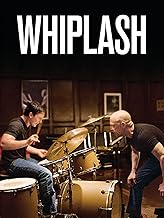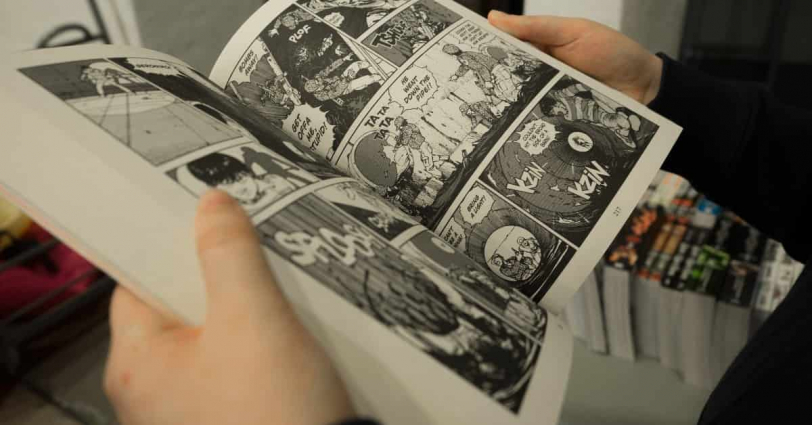I wrote this article in Japanese and translated it into English using ChatGPT. I also used ChatGPT to create the English article title. I did my best to correct any translation mistakes, but please let me know if you find any errors. By the way, I did not use ChatGPT when writing the Japanese article. The entire article was written from scratch by me, Saikawa Goto.
Introduction
Movies and books covered in this article

I will write an article about this movie/book
What I want to convey in this article
Is an environment that pushes people to their limits really necessary to bring out their talent?



If that kind of environment didn’t exist, would we no longer see “masterpieces” being created?
Three takeaways from this article
- The environments of the past without SNS and the present differ greatly.
- It’s hard to deny the existence of “leader to hunt down.”
- We ourselves participate in “pressure-inducing environments,” such as reader surveys in manga magazines.



Without the “broken dreams” of those who failed, could expression and creation no longer produce “masterpieces”?
Self-introduction article


Please refer to the self-introduction article above to learn about the person writing this article. Be sure to check out the Kindle book linked below as well.


Published Kindle books(Free on Kindle Unlimited)
“The genius Einstein: An easy-to-understand book about interesting science advances that is not too simple based on his life and discoveries: Theory of Relativity, Cosmology and Quantum Theory”
“Why is “lack of imagination” called “communication skills”?: Japanese-specific”negative” communication”
The quotes used in this article are based on notes taken at the movie theater from movies in Japanese and are not direct quotes from the foreign language original movies, even if they exist.
Is “Leader to Hunt Down” Necessary to Develop One’s Talent? If Possible, I Want to Refute That Idea
In this movie, it depicts “the environment where the leader pushes to the limit” to develop the talent they desire.


However, is that really the right way? I can’t completely abandon my belief that “there’s no way that’s true.”
In the first place, you don’t like being cornered, do you.



Yes, I absolutely hate it.




“Aiming for Perfect Parts” and “Being True to Yourself”
When we think about wanting to “be somebody,” it’s a difficult problem to decide which path to take to get there. The options would be usually to “aim for perfect parts to fit someone else’s ideal” or “aim for an environment where we can truly express ourselves.”
The former approach is appropriate for team activities such as sports, music, and dance, where the team works together to aim for the top, and being part of the whole is required. Even in individual activities such as drawing pictures or playing chess, learning from famous schools or instructors would be considered the former style.


Anyway, in the case of “aiming for perfect parts,” I think the style would be to have a film director, producer, or other mentor figure to realize that person’s ideal. And in order to achieve that ideal, you aim to become a perfect part of the team, even if you have to suppress your “true self.”
On the other hand, the latter involves creating expressions and works alone, or having an image of leading other people in a position of leadership. This would apply to artists who appear under their own name or people who write and compose for bands, for example.
I think it depends on the person which style is better, but those who wish to “be somebody “are more likely to desire the latter way of life. However, “expressing oneself while creating and producing” cannot be achieved by effort alone. It should require quite a bit of “luck,” unless you are an extraordinary genius who overwhelms others.


Especially in the past, this was particularly evident. It was only natural because opportunities to appeal “what one can do” were extremely limited compared to today. Therefore, I think that there were more people who chose to live their lives aiming for “perfect parts” like the former.





Of course, even now, I think it’s quite normal to choose a life aiming for “perfect parts.”
Not everyone is suited for a life like the latter.
With the Emergence of SNS, the Situation has Greatly Changed
It can be said that SNS has significantly changed the situation by enabling everyone to freely express “what they can do.” Since the number of expressions has become enormous, it may not be easy to stand out from among them. However, in modern times, many net-based artists have been born, and it can be said that the “possibility of being found” has increased significantly compared to a decade ago.


On the internet, it can be said that expressing oneself is very suitable. And if that “be oneself” is evaluated as it is, the “possibility of continuing to express and create while exhibiting be oneself” should be quite high. It can be said that the road that was too narrow to even consider a few decades ago is now quite open.
Now, in such a world, this movie is asking the following question:
Is an environment where leaders hunt down to become “perfect parts” still necessary?


In this movie, there is a coach who answers the above question without hesitation with a “YES.”
The most dangerous phrase in the English language is this two words: “Good job.”


He says it in that way. It’s a declaration that says, “I don’t have any intention of praising you.” He truly believes that talent blossoms only when he relentlessly pushes and drives his students to their limits.
I wanted to lift everyone up beyond what they thought they were capable of.
I made an effort that not any coach could do. I have no intention of apologizing for that.


Such a person, to demonstrate the correctness of his teaching method, brings up an episode of jazz musician Charlie Parker. Here’s the story of him, known by the nickname “Bird”.
Charlie Parker made a mistake during a performance and was hit with a cymbal. That night he cried out on his bed. The next day, what did he do? He practiced. That’s how he became “Bird”. If he hadn’t been hit with a cymbal, and if he hadn’t been inspired to practice, “Bird” would never have been born. If he had been told “good job”, “Bird” would never have been born.



I can’t like people who try to draw general conclusions from just one example.
So, it’s just a story that Charlie Parker was like that.
Naturally, there are people who have a question as follow.
But didn’t it cause Next Charlie to give up?


Of course, no matter how wonderful a method is, it doesn’t apply to everyone. The way that worked for Charlie Parker may naturally lead other people to give up.


However, in response to this, the coach says,
No matter what happens, Next Charlie will not give up.
To me, this reply sounds more like “madness” than “conviction,” but what do you think?


If the person in front of them is someone who will definitely become the “Next Charlie,” there is no problem. They just have to corner the person and let their talent bloom. The problem is that there is no guarantee that the person in front of them is the “Next Charlie.”
In that case, one can only assume that this coach believes that as long as they can find even one “Next Charlie” among the majority of people in front of them, even if it means crushing the talents of most of them, then that’s all that matters. This means that there are enough people with talent, so there must be at least one “Next Charlie” among them and as long as that person survives, the rest doesn’t matter.



I would absolutely hate to be in that kind of environment.
But you’re probably okay, since you don’t really want to “be somebody.”


For those who are not “Next Charlie,” such an environment is nothing but hell. However, everyone wants to believe that they themselves are “Next Charlie” and will persevere in the belief that there is a possibility.
I can’t help but question whether such a harsh environment is really necessary.


Even so, I Can’t Completely Deny the Existence of “Leader to Hunt Down”
While feeling uncomfortable with the existence of “leader to hunt down,” on the other hand, some part of me can’t also completely deny it.
Depending on the person, there would be something that is born only when they are pushed to the limit. Or is it more accurate to say that there is a feeling of wanting to believe so? Some people may have a kind of prayer-like feeling that “if their true talent is drawn out from within themselves, which they are immature right now, they can fight. And it should come out when they are pushed to the limit.” By thinking like that, if they can accept their “still immature self” and devote themselves to their efforts, the existence of “leader to hunt down” would not be necessarily a bad thing.


Or, there are cases where we ourselves are part of the “leader to hunt down”.
For example, in the case of manga magazine serialization. Many people aim to have their manga serialized in magazines, but only a few succeed. And in many cases, the “reader survey” is what decides the “success or failure”. Depending on the result of the reader survey, it is determined whether the serialization will continue or not, and a pile of corpses is created by those who were not chosen (in manga magazines such as “Shonen Jump”, there are postcards for reader surveys attached, and the order of publication and the continuation of serialization are determined by collecting and analyzing them).


We are able to read interesting manga because there are mountains of “dreamers who have failed” behind it. By cutting down a huge number of challengers with the “reader survey,” we are deciding on only a few “Next Charlies.” In a sense, we can say that we have become like the “leader to hunt down”.


The leaders depicted in this movie and we who evaluate manga by reader survey are essentially doing the same thing, with the only difference being whether we have the intention to “hunt down.” Although we are unaware of this, we are indirectly supporting the “leader to hunt down” and by doing so, we are creating an environment where “interesting manga” is produced together.
If there were no manga magazines and all manga created were uploaded to the internet without any selection, would “ONE PIECE” or “SLAM DUNK” have been born? They might have been born, but I think they were still born because they are just in a “world that produces many losers” (i.e. competitive environment).





I don’t want to be on the side of the “victims”, but most people include me are on the side of the “victims”.
I think it’s an amazing world because everyone jumps in with that resolve.
If that’s the case, we cannot deny the world depicted in the movie “Whiplash.” Of course, talent may bloom and masterpieces may be born even without a “leader to hunt down.” However, there may also be a possibility that “truly wonderful things” may not emerge. We cannot completely abandon such doubts.
I felt that this work arouses a feeling of ambivalence where we want to deny it but cannot.


Content Introduction
19-year-old Andrew Neiman attends Shaffer Conservatory, America’s top music school, and spends his days practicing drums.
Meanwhile, Fletcher, who leads the “Studio Band,” the most highly regarded band on campus, is constantly scouting for talented individuals to join the group. Neiman catches Fletcher’s eye and becomes the youngest member of the band.
However, the practice with the “Studio Band” is extremely grueling. Fletcher has an “ideal” that he wants the band to achieve, and if they deviate even slightly from that ideal, they are forced to start over many times. Neiman pushes himself to the brink, gripping his sticks until blood drips from his hands.


All of it is in pursuit of Fletcher’s “perfect piece.” Those who cannot embody his ideal are mercilessly forced to quit.


Neiman and the other band members desperately cling to Fletcher’s “guidance.” However no matter how hard they try, they are verbally abused by Fletcher. They are punched and insulted constantly. But they cannot give up. They believe that clinging to Fletcher is the way to success. Neiman too continues to practice endlessly, soaking his bloodied hands in ice water.
All in order to become a part of Fletcher’s “ideal.”


Conclusion


It may be a world without a correct answer, but you might find yourself thinking, “What is the correct answer?” They’re not being forced by anyone to follow Fletcher’s guidance, so others don’t have the right to complain. However, personally, I can’t help but feel that I want to refute Fletcher’s guidance.



For those who fit in, it must be an attractive environment to truly develop their talent.
I wonder how many people these days think that way.


I won’t go into details, but the ending was very impressive. The portrayal of Neiman, who overcomes the wall and becomes lively, and the exchange between Neiman and Fletcher at the “heights that cannot be reached by words” are magnificent.
What was Fletcher thinking in that final scene? Did he reaffirm that his teaching method was correct, or did he sense something within Neiman? The lingering ending was impressive.
The work portrays the cruelty that makes us imagine the countless “victims” behind the things that enrich our lives, and the courage to not give up the desire to “be somebody.”


Published Kindle books(Free on Kindle Unlimited)
“The genius Einstein: An easy-to-understand book about interesting science advances that is not too simple based on his life and discoveries: Theory of Relativity, Cosmology and Quantum Theory”
“Why is “lack of imagination” called “communication skills”?: Japanese-specific”negative” communication”







コメント